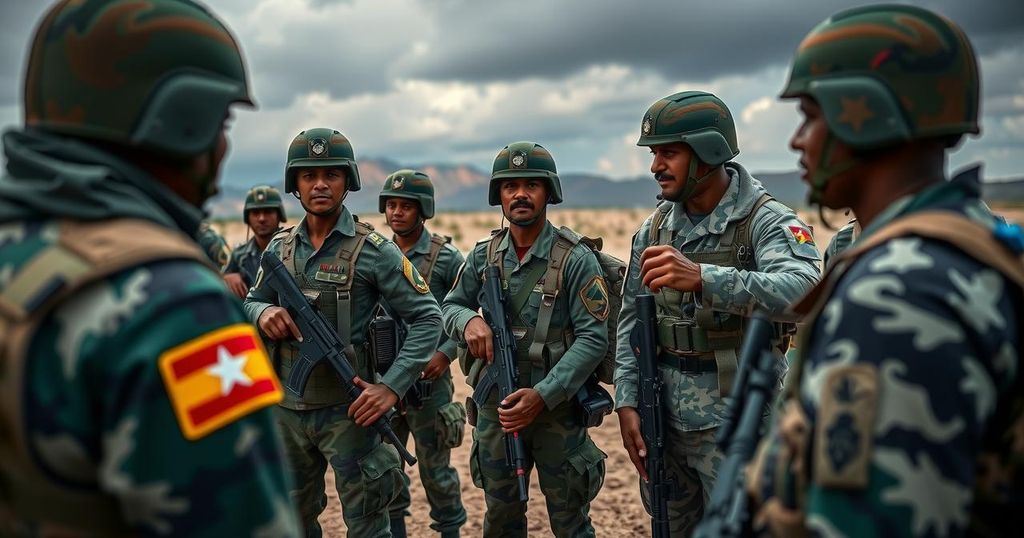The Central African Republic reported the surrender of hundreds of rebel soldiers, facilitated by a peace agreement with Chad aimed at securing their shared border. Facing dire conditions, many insurgents deemed it necessary to lay down arms. The C.A.R. government is now pushing for long-awaited local elections that were postponed initially due to insecurity.
The Central African Republic (C.A.R.) announced the surrender of several hundred rebel fighters, who have relinquished their weapons to both government troops and United Nations forces. This development follows a newly established agreement between C.A.R. and neighboring Chad to bolster security along their shared 1,200-kilometer border. As conditions worsen, C.A.R. officials aim to organize delayed local elections, previously set for October, now rescheduled for December 29, provided the security situation improves. Many rebel fighters attributed their decision to surrender to hardships exacerbated by continuous military operations against them. Mloubo Etienne, a defected member of the Union for Peace (UPC), one of the C.A.R.’s largest armed groups, cited unbearable living conditions including scarcity of food, particularly in the jungle areas near C.A.R.’s southern border. Reports suggest that many UPC members along the northern border with Chad also wish to surrender due to similar food shortages caused by Chad’s military actions. According to Maxime Balalou, the C.A.R. communication minister, some of the 105 fighters who surrendered in Bambari identified with either the UPC or anti-balaka factions. In a separate encounter in Kouango, 36 additional fighters, including three women, were disarmed. The government intends to reintegrate these individuals into society, offering economic support and training, or assisting them in joining the national military. The anti-balaka is an established alliance of various rebel groups that has been active over the past decade. The C.A.R. government asserts its commitment to neutralizing remaining rebel factions, stating that u20fcrs who do not surrender may face lethal consequences. In partnership with Chad, whose troops will patrol the border to prevent supplies from reaching rebels, the C.A.R. aims to facilitate peace ahead of the first local elections in 36 years, which were rescheduled due to insecurity and a lack of political preparedness. As part of the disarmament strategy, C.A.R. authorities have expressed a goal to secure the surrender of a significant proportion of the estimated 21,000 rebels by the end of 2025. These efforts are critical for stabilizing the region and achieving lasting peace in the C.A.R. and its neighboring areas.
The Central African Republic has faced ongoing conflict since 2013, characterized by the emergence of multiple rebel groups vying for power and resources. The anti-balaka and UPC factions have been particularly significant in this struggle. In recent years, the international community and regional partners, including the United Nations and Chad, have sought methods to stabilize the C.A.R. through peace initiatives and disarmament programs. The current surrender of rebels follows a recent cooperation agreement aimed at collective border security, which is crucial to ensuring the safety of the C.A.R. and its inhabitants.
In summary, the recent surrender of hundreds of rebel fighters in the Central African Republic marks a critical step towards restoring peace and stability following years of conflict. The coordinated efforts between C.A.R. and Chad to implement joint security measures signify a proactive approach to disarmament and reintegration of former combatants. The upcoming local elections represent a pivotal opportunity for governance and political participation in a nation that has endured significant instability.
Original Source: www.voanews.com







